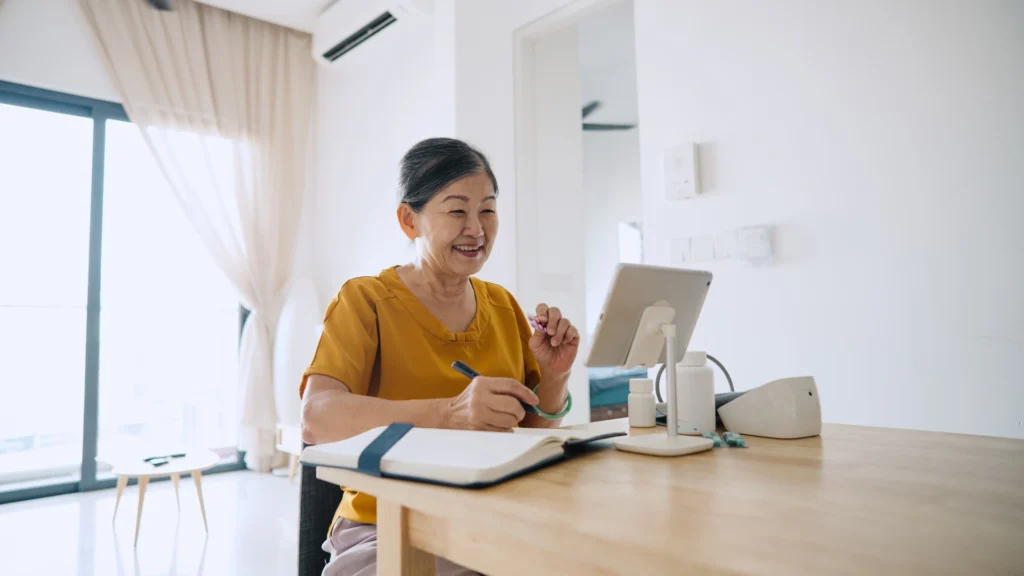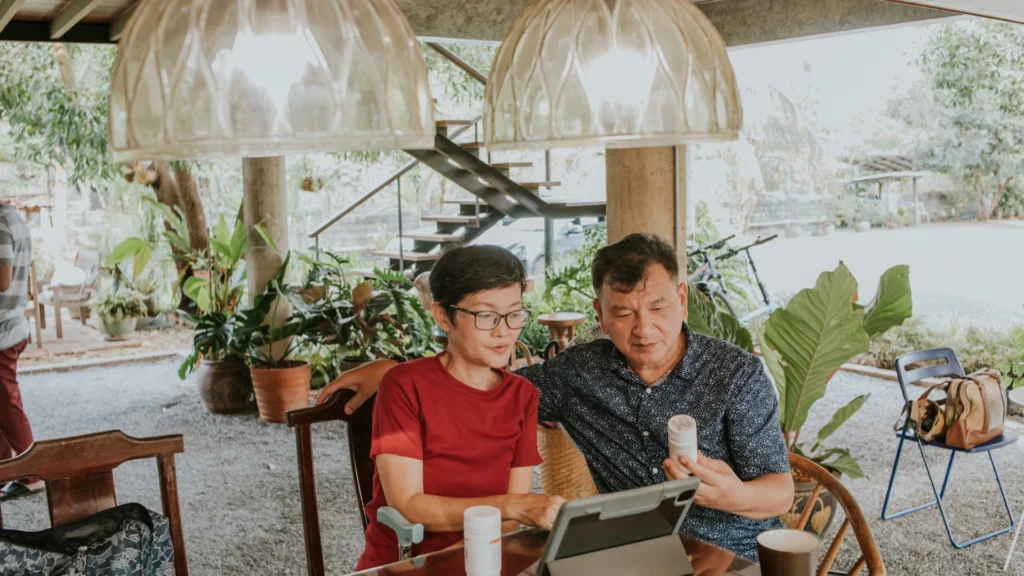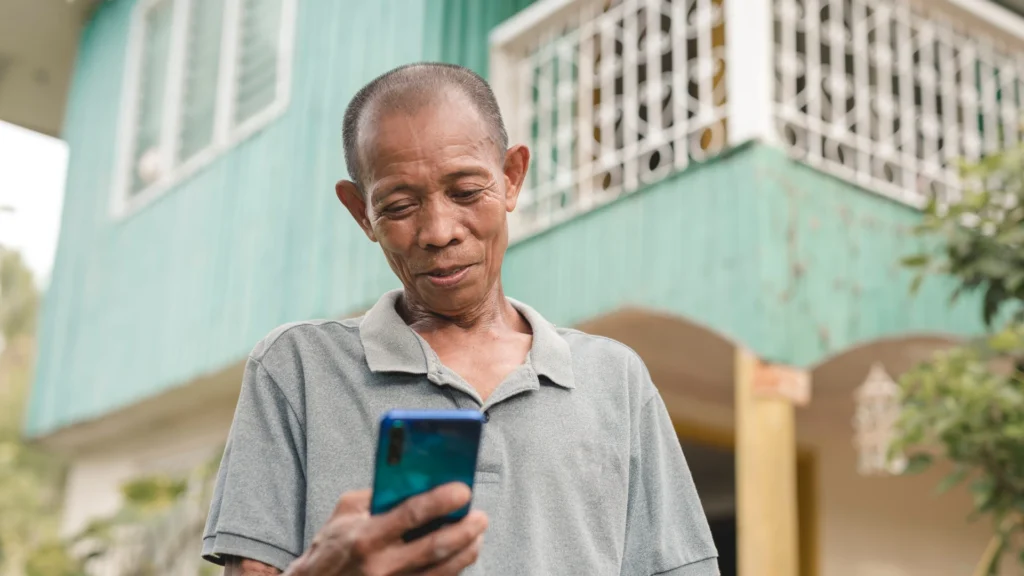
What if your doctor didn’t just treat your symptoms, but also taught you how to understand them? What if your healthcare app didn’t just help you get medicine, but also helped you make better choices every day?
That’s exactly what’s happening across Malaysia as digital platforms like FEV3R shift from being just medical service providers to becoming powerful tools for digital health education. In a time where information is everywhere but clarity is rare, building health literacy in Malaysia has never been more important.
Let’s explore how this growing focus on patient empowerment in Malaysia is transforming healthcare from a passive experience to an active learning journey—one that puts power back in the hands of everyday Malaysians.
Why Health Literacy Matters More Than Ever
Imagine receiving a diagnosis but not fully understanding what it means. Or being prescribed medication, but not knowing how or when to take it correctly. Unfortunately, this isn’t uncommon in Malaysia, especially among older adults, those in rural areas, or those with limited education.
Health literacy in Malaysia refers to a person’s ability to understand and use health information to make informed decisions. It’s not just about reading—it’s about knowing how to manage symptoms, ask the right questions, and use healthcare services wisely.
Low health literacy can lead to:
- Poor medication adherence
- Delays in seeking treatment
- Misunderstanding medical advice
- Unnecessary hospital visits
- Higher risk of chronic disease complications
The solution? Accessible, reliable, and ongoing telemedicine knowledge sharing—right from your smartphone.
Digital Platforms Are Filling the Education Gap
We often think of healthcare apps as quick-fix tools: book an appointment, talk to a doctor, get meds, done. But the best platforms—like FEV3R—go beyond transactions. They help users understand what’s happening in their bodies and why, offering long-term value through education.
Here’s how digital health education works in practice:
1. Clear, Simple Language
No medical jargon, no confusing terms—just straight-to-the-point explanations about conditions, symptoms, and treatments. This makes it easier for users to actually retain and apply what they learn.
2. Interactive Features
Quizzes, symptom checkers, and health trackers help users stay engaged and encourage learning-by-doing. These tools turn passive reading into active understanding.
3. Personalised Advice
Instead of giving one-size-fits-all answers, digital platforms can tailor health tips based on user profiles. This increases relevance and boosts motivation to learn more.
4. 24/7 Access
Unlike traditional settings where you need to wait for appointments, health awareness apps are available anytime. Users can explore articles, ask questions, or revisit topics whenever they want.

The FEV3R Difference: Education That Empowers
FEV3R isn’t just a telemedicine app—it’s a growing hub for digital health education in Malaysia. While most people know FEV3R for its affordable RM24 consultations, fewer realise how much value the app provides between appointments.
Through articles, infographics, app notifications, and doctor conversations, FEV3R encourages patient empowerment in Malaysia. The platform helps users:
- Understand their diagnosis
- Learn how to use medication properly
- Identify early signs of common illnesses
- Practice preventive care
- Ask smarter questions during teleconsultations
Whether you’re learning about mental health, managing diabetes, or just trying to improve your sleep—FEV3R gives you tools and language to understand what your body is telling you.
Real-Life Examples of Education in Action
To see how telemedicine knowledge sharing makes a difference, consider these examples:
1. The Curious Uni Student
A student in Penang, started using FEV3R for flu symptoms. While browsing the app, she discovered an article about stress-related fatigue. It clicked—her symptoms weren’t just physical. She scheduled a virtual consultation and, with her doctor’s advice, made changes to her sleep and study habits. She didn’t just get better—she understood her health better.
2. The Concerned Parent
A father of two in Klang, wasn’t sure if his child’s cough was serious. A quick check on the FEV3R app led him to an educational post explaining different types of coughs and when to seek help. He booked a consultation and avoided both panic and unnecessary medication.
These are small wins—but they build long-term confidence and competence in healthcare decision-making.
Why Health Literacy Supports Better Health Outcomes
Learning doesn’t stop at school—and health learning should never stop at the clinic door. When Malaysians are equipped with health knowledge, they can:
- Catch early symptoms
- Prevent hospital visits
- Ask relevant questions during checkups
- Take medication correctly
- Manage chronic conditions more effectively
Reduce fear and anxiety around health issues
Benefits of Pairing Wearables with Telemedicine
Learning doesn’t stop at school—and health learning should never stop at the clinic door. When Malaysians are equipped with health knowledge, they can:
- Catch early symptoms
- Prevent hospital visits
- Ask relevant questions during checkups
- Take medication correctly
- Manage chronic conditions more effectively
- Reduce fear and anxiety around health issues
Patient empowerment in Malaysia also helps build trust between users and medical professionals. When people understand what’s happening to them, they’re more likely to follow through with treatment plans.
In the long run, it leads to healthier individuals, reduced strain on the public health system, and stronger communities.
The Role of Health Awareness Apps in Reaching Underserved Populations
Rural communities, low-income households, and even busy urban workers often miss out on health education due to time, distance, or lack of access. But health awareness apps are changing that.
By placing reliable content in everyone’s pocket, these platforms break down barriers of geography and education. Plus, since most Malaysians use smartphones daily, there’s huge potential to integrate health education into daily routines.
Push notifications about flu season, quick guides on dengue prevention, or short videos about nutrition—these all help build a more informed and health-savvy population, one alert at a time.

Challenges and Opportunities Ahead
While health literacy in Malaysia is improving, challenges still exist:
- Misinformation online: Social media often spreads false health tips faster than facts.
- Language barriers: Educational content needs to be available in Bahasa Malaysia, English, and Chinese or Tamil to ensure inclusivity.
- Digital literacy: Older Malaysians may need help navigating apps.
- Health fatigue: With so much content online, users may feel overwhelmed.
Platforms like FEV3R must continue investing in user-friendly design, localised content, and content moderation to remain trustworthy sources of digital health education.
The Future of Health Literacy Is Digital—and It Starts With You
Gone are the days when healthcare was something you only thought about when you were sick. Today, it’s about prevention, understanding, and daily choices—and telemedicine knowledge sharing makes all of that possible from your phone.
Whether you’re 25 or 65, working in an office or running your own business, your health matters. And the more you understand it, the better you can manage it.
By choosing apps like FEV3R, you’re not just booking appointments. You’re learning. You’re preparing. You’re building lifelong habits that keep you healthier, longer.
Take the First Step to Smarter Health
Want to be more confident about your health? Start by learning the basics. FEV3R gives you trusted medical advice, easy-to-read articles, and access to real doctors—all in one place.
Download FEV3R today and begin your journey toward better health literacy in Malaysia. It’s time to take your health seriously—and smartly.






